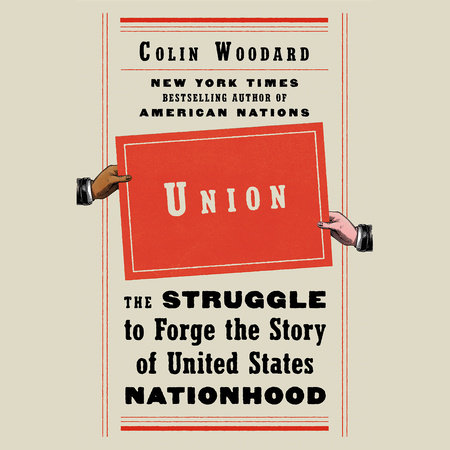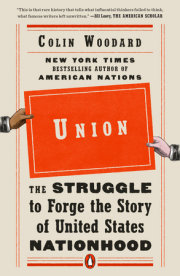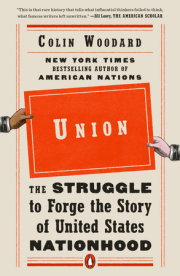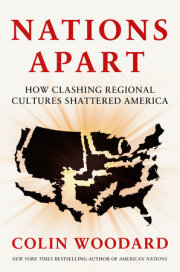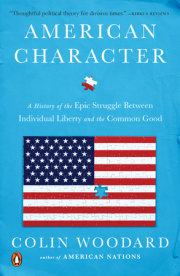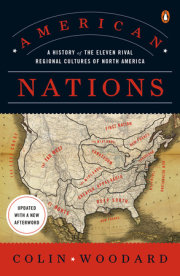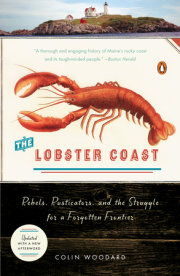ONE
The enemy's forces were surrounded, artillery raining down on them from three sides, their backs to the river, huddled in fortifications from which there was no escape. All through the night and into the morning, French and rebel cannonballs blasted the town's hewn-log defenses, propelling wooden shrapnel through flesh and bone. Shells tore through buildings, buried men in their trenches, and scattered severed limbs across muddy streets. Within the collapsing walls, food was scarce, even though the commander had already expelled all the fugitive slaves who had sought shelter beneath his flag, the Union Jack.
Then a red-coated drummer appeared at the top of the parapet. His arms began moving rapidly as he beat on his instrument. The soldiers of the besieging armies couldn't hear the drumroll over the din of artillery, but when a British officer appeared beside him, holding a white handkerchief above his head, the meaning was clear enough. The cannon stopped firing, the last clouds of smoke slowly rose into the sky, and the beat of the drum could be heard, signaling a desire to parley. The British officer and the drummer-the latter still broadcasting the request for a truce-stepped down from the defenses and walked slowly toward the American lines. A Continental officer ran up to greet his British counterpart and fastened a handkerchief over his eyes. He sent the drummer back over the parapet to Yorktown and led the blindfolded officer to meet General George Washington.
After a solemn night beneath a clear sky "decorated with ten thousand stars," Lord Cornwallis negotiated his surrender. The day after that, October 19, 1781, his seven-thousand-man army marched out of the shattered Virginia port between rows of French and Continental troops, their regimental flags furled, the drummers playing "Welcome Brother Debtor," a tune associated with imprisonment. They laid their rifles in heaps at the rebel's feet.
The war for American independence was at an end. But what now?
Thirteen of Britain's seventeen mainland North American colonies had won independence, having banded together to face a common threat to their respective political institutions, traditions, and liberties. They had created a joint military command, the Continental Army, and a sort-of treaty organization, "The United States of America," under the Articles of Confederation. Each of these American states was sovereign and independent, having agreed only to delegate defense, foreign trade, and foreign policy duties to their shared body, the Congress, which had fled from place to place during the conflict. Nobody really knew what this United States was or what it should become or even if it should continue to exist at all.
These new states' citizens didn't think of themselves as "Americans," except in the sense that French, German, and Spanish people might have considered themselves "Europeans." If asked what country they were from, the soldiers who now occupied Yorktown would have said "Massachusetts" or "Virginia," "Pennsylvania" or "South Carolina." For years to come, newspaper editors across the former colonies would refer to the new collective not as a nation but as a "league" or as the "American states" or "Confederated America," unsure of what it was or how long it might last.
The ethno-cultural landscape-with all its implications for nationhood-was even more complex. The descendants of English Puritans dominated most of New England and upstate New York; those of Southern English gentry and their indentured servants and slaves populated the Chesapeake country; those of the English slave planters of Barbados controlled life in the Deep Southern lowlands. The legacy of the Dutch colony of New Netherland had shaped the development of the area around New York City, while that of William Penn's Quakers had begat an ethnic and religious mosaic (with a German plurality) up and down the Delaware Valley. The backcountry was overwhelmingly Scots-Irish, in constant friction with the coastal societies that usually governed them. If a nation can be described as a people with a sense of common culture, history, and belonging, there were, in effect, a half dozen of them within these "United States," and outside New England there wasn't a single state that wasn't divided between two or, in the case of Maryland and Pennsylvania, three of them.
In the run-up to the war, one of the biggest arguments against leaving the Empire had been that a shared British identity was one of the few things keeping the colonies at peace with one another. In 1764 one anonymous letter to the editor of the New York Mercury warned that if the colonies achieved independence, "the disputes amongst ourselves would throw us into all the confusion, and bring on us all the calamities usually attendant on civil wars." In Maryland Reverend Jonathan Boucher warned New Englanders would become "the Goths and Vandals of America," conquering their neighbors. The Founding Father John Dickinson of Pennsylvania predicted that an independent British North America would collapse into "a multitude of Commonwealths, Crimes, and Calamities-centuries of mutual Jealousies, Hatreds, Wars and Devastations, until at last the exhausted Provinces shall sink into Slavery under the yoke of some fortunate conqueror." Leaving Britain, he added, was tantamount to "destroying a house before we have got another, in winter, with a small family."
Wartime regional divisions were so profound that, in 1778, the British secret agent Paul Wentworth reported there would be not one American Republic, but three: an "eastern republic of Independents in church and state," a "middle republic of toleration in church and state," and a "southern . . . mixed government copied nearly from Great Britain." The differences between them, Wentworth argued, were greater than those between the nations of Europe. Even after the war the London papers reported that "the States consider themselves thirteen independent provinces, subject to no other control than their own assemblies. The authority of Congress, to which they submitted but from necessity during the war they have now almost generally thrown off." Edward Bancroft, a postwar British spy, predicted the American confederation would surely splinter, leaving only the "question whether we shall have thirteen separate states in alliance or whether New England, the middle, and the southern states will form three new Confederations."
One thing was clear to the confederation's elites in the aftermath of the war: Unless a more formidable union could be negotiated, the United States would soon fall apart. "I . . . predict the worst consequences from a half-starved, limping government, that appears to be always moving upon crutches and tottering at every step," Washington wrote in 1784, and added in 1786: "I do not conceive we can long exist as a nation without having lodged somewhere a power which will pervade the whole union in as energetic a manner as the authority of the different state governments extends over the several states." Everyone realized, Jefferson would later recall, that "these separate independencies, like the petty States of Greece, would be eternally at war with each other."
The Constitutional Convention of 1787 was called in response to this growing crisis and yielded a legalistic remedy: a stronger federal government constrained by elaborate checks and balances between its monarchical, aristocratic, democratic, and priestly components-the presidency, Senate, House, and Supreme Court-and vis-ˆ-vis the states themselves, which arguably remained sovereign little nations. The whole point was to ensure no one block of colonies-no one regional culture-would be able to force its will on the others. The word "nation" was conspicuously absent from the constitution that was drafted.
The United States of America came into being as a contractual agreement, a means to an end for the parties involved. No one thought they had created a nation-state of the sort that Holland or Prussia or post-Revolutionary France was, and that central Europe's Romantic thinkers hoped the states of the German Confederation might one day become. Its people lacked a shared history, religion, or ethnicity. They didn't speak a unique language all their own. They hadn't occupied the continent long enough to imagine it as a mythic homeland, a place their people had dwelled in since time immemorial, and they'd killed or supplanted those people who did have the right to make such a claim. They lacked a common political heritage apart from the imperial ties against which they had just revolted, and they had no shared story of who they were and what their purpose was. In short, they had none of the practical or ideological foundations of a nation-state.
The United States was a state in search of nationhood, a country in search of a story of its origins, identity, and purpose. It needed to find these things if it was to survive.
For a time the ad hoc remedy to this problem was to define American identity in terms of participation in the shared struggle of the American Revolution. Washington, commander in chief and founding president, was venerated almost as a monarch until his death in 1799, then promptly promoted to demigod: the father of the nation, the mythic lawgiver, a man of perfect virtue, wisdom, and morals whom "Americans" might strive to emulate. Parson Mason Weems, a hustler-cum-historian, invented stories to buttress this image and disseminated them at considerable profit in pamphlets and, later, his book-length Life of George Washington. Washington's birthday was made a public holiday. His remains were treated as sacred relics, their resting place fought over between Virginia (which held them) and the U.S. Congress, which had appropriated money to house them in a purpose-built D.C. shrine. Virginia won.
But the beatification of Washington and his wartime supporting cast-Henry Knox, Nathan Hale, Ethan Allen, the Marquis de Lafayette-only worked as a placeholder for a national narrative for as long as 1776 remained in living memory. By the 1810s the Revolutionary soldiers and Founding Fathers began dying off, leaving a growing void where the country's sense of national identity should have been. Backcountry settlers in the Appalachian uplands had rebelled against the authority of the governments of Pennsylvania, Maryland, Virginia, and the United States in the early 1790s. New Englanders considered seceding from the federation during the War of 1812, and the governor of Massachusetts had conspired with British officials to frustrate the federal war effort.
The federation's leaders began panicking. Senators slapped a tariff on the British books they feared were brainwashing Americans in their own schools and libraries. Noah Webster toiled away at compiling an "American" dictionary with distinctive words and spelling conventions in an effort to create a "national" language because, as he put it, "America should have her own, distinct from all the world." The intellectuals who wrote for the leading journal of the era, The North American Review, lamented that the United States couldn't produce a history of its own-a story of itself and its origins-because its component states couldn't agree on what it should say. "It will be at best but a combination of distinct histories," one lamented, "which subsequent events only show the propriety of uniting in a single narrative." If new adhesives weren't developed, if someone didn't fashion a compelling story of what America was, the young Union was expected to fall apart.
This is the story of the struggle to create that national story and, with it, an American nationhood. It is told through the eyes of the primary combatants themselves: three men born in very different circumstances at the dawn of the nineteenth century who would develop three competing answers to the United States' existential questions; and two who came of age in the aftermath of the Civil War and witnessed the triumph of one vision over the other in the second decade of a new century. It's the story of how the peoples of the United States answered those great existential questions of nationhood: Where did we come from? Who are we? Where are we going?
I end the story at the point when a broad consensus on how to answer these questions was finally achieved. It's a struggle that takes the better part of a century, a period in which we see the federation radically transformed-geographically, technologically, economically, and philosophically-into an industrial empire capable of dominating the world. This consensus was by no means final, but its contours make this a sobering and cautionary tale for readers today.
Copyright © 2020 by Colin Woodard. All rights reserved. No part of this excerpt may be reproduced or reprinted without permission in writing from the publisher.

